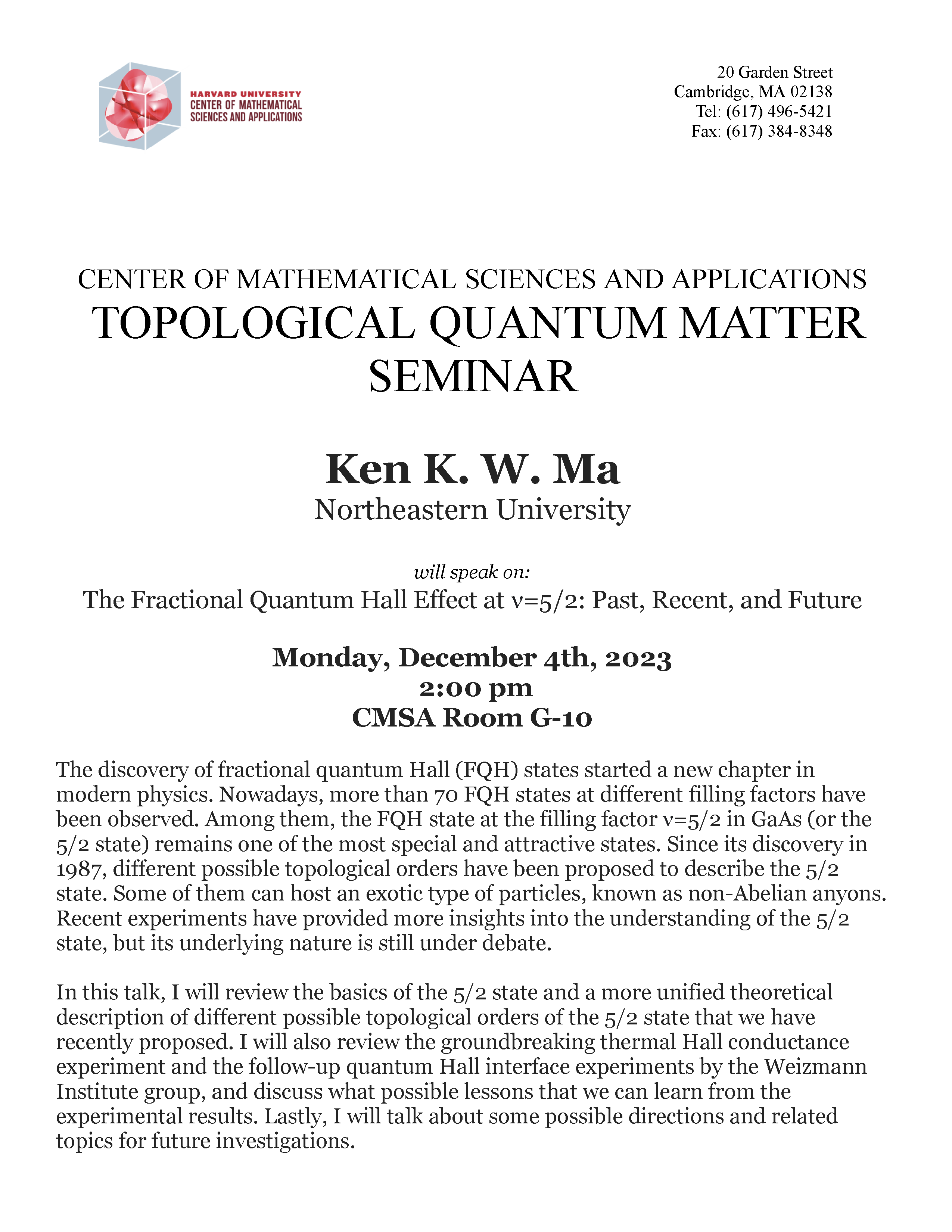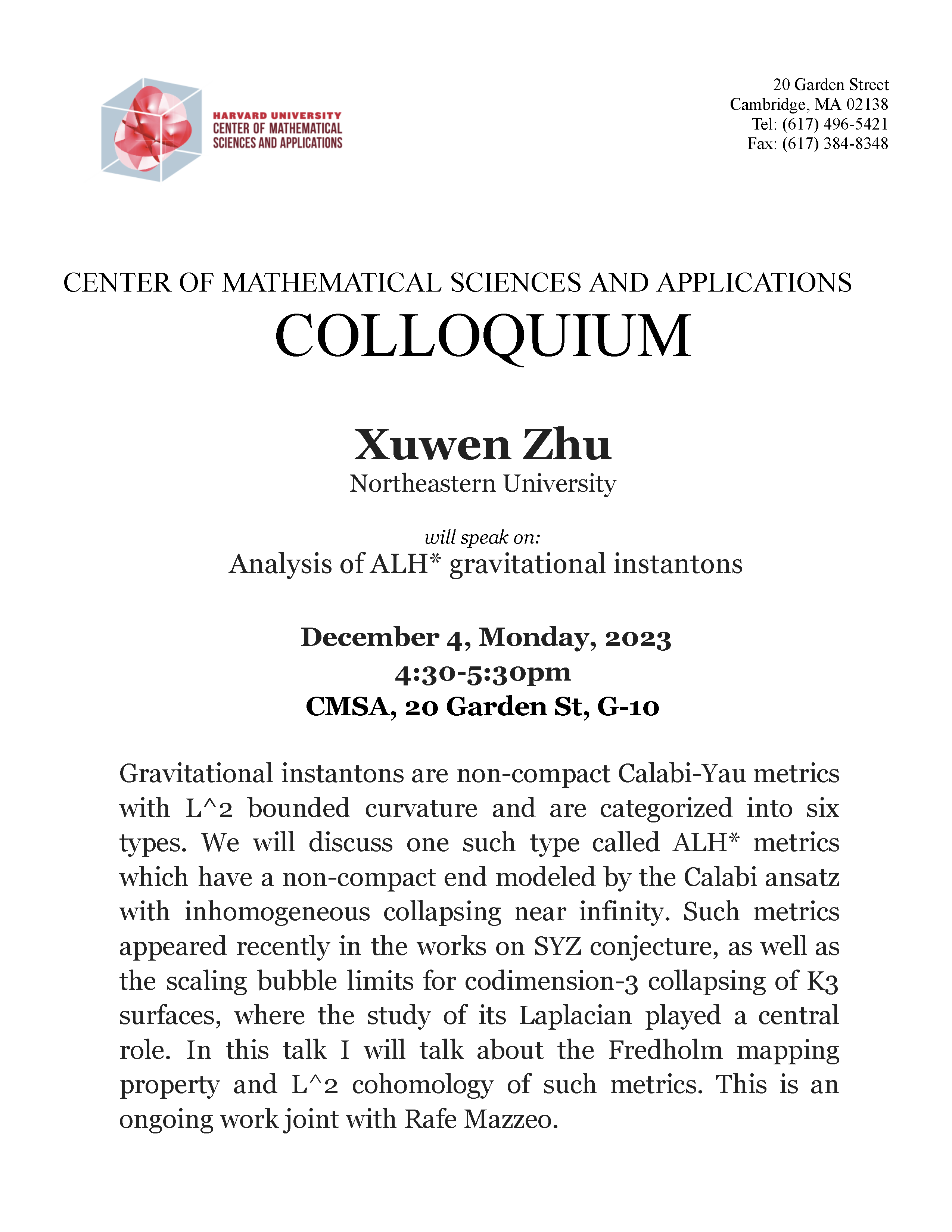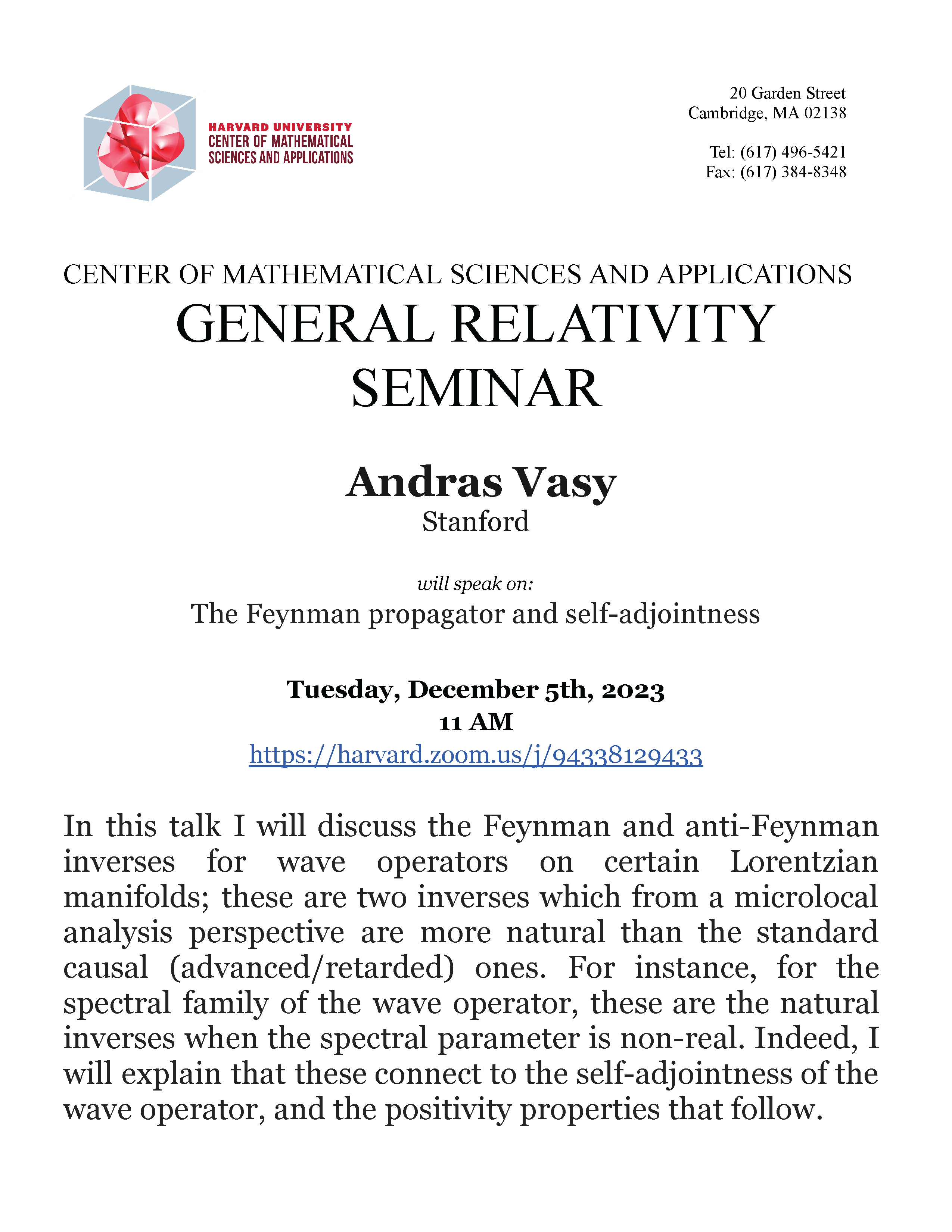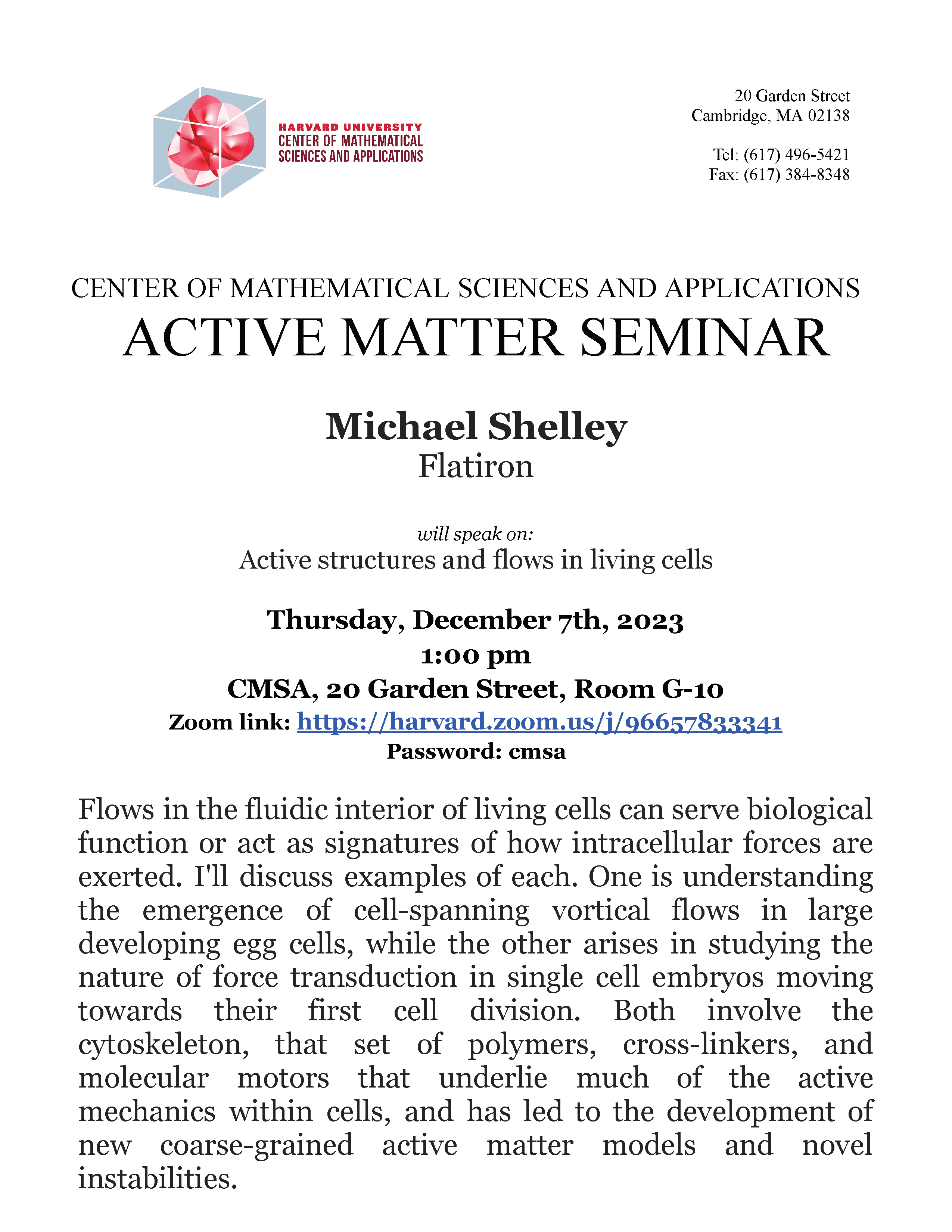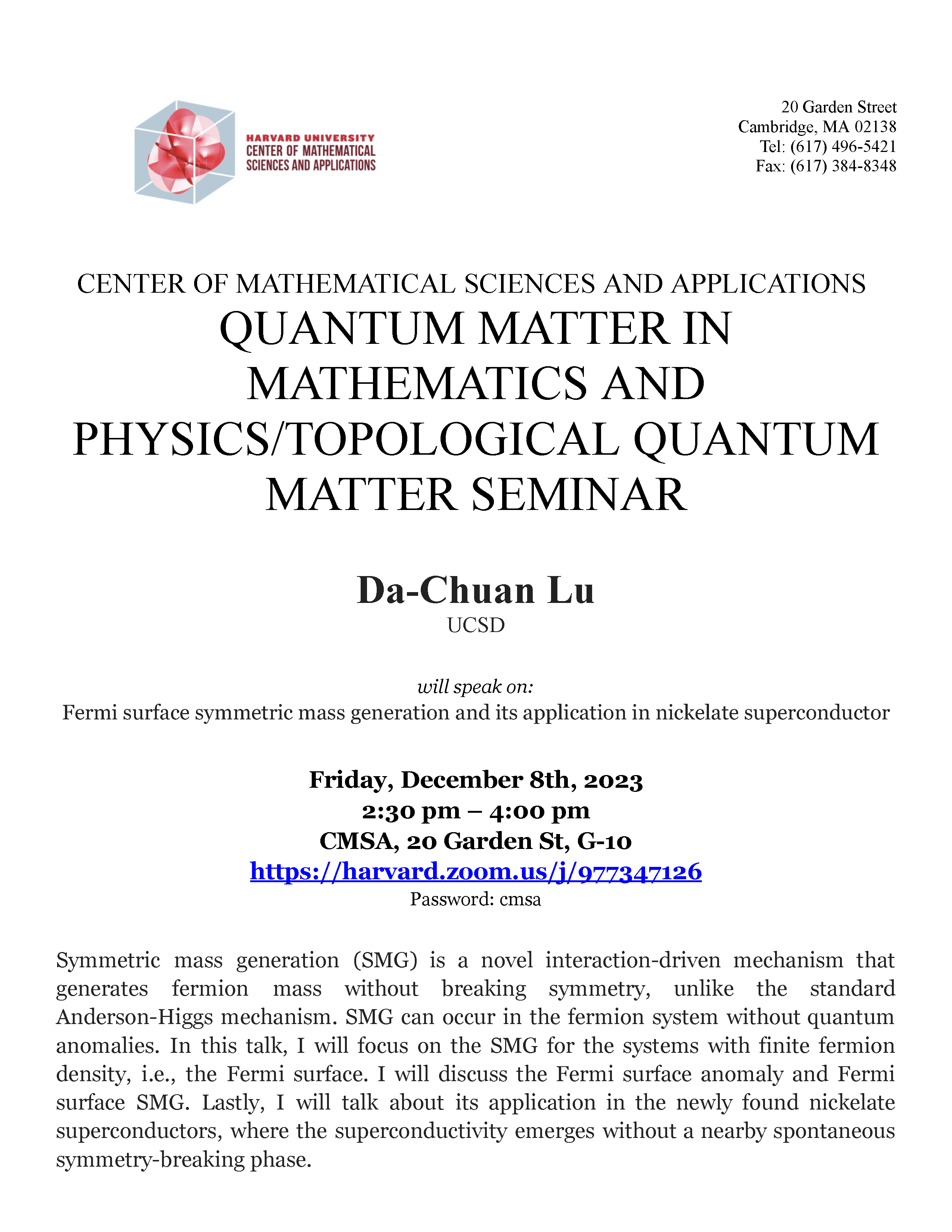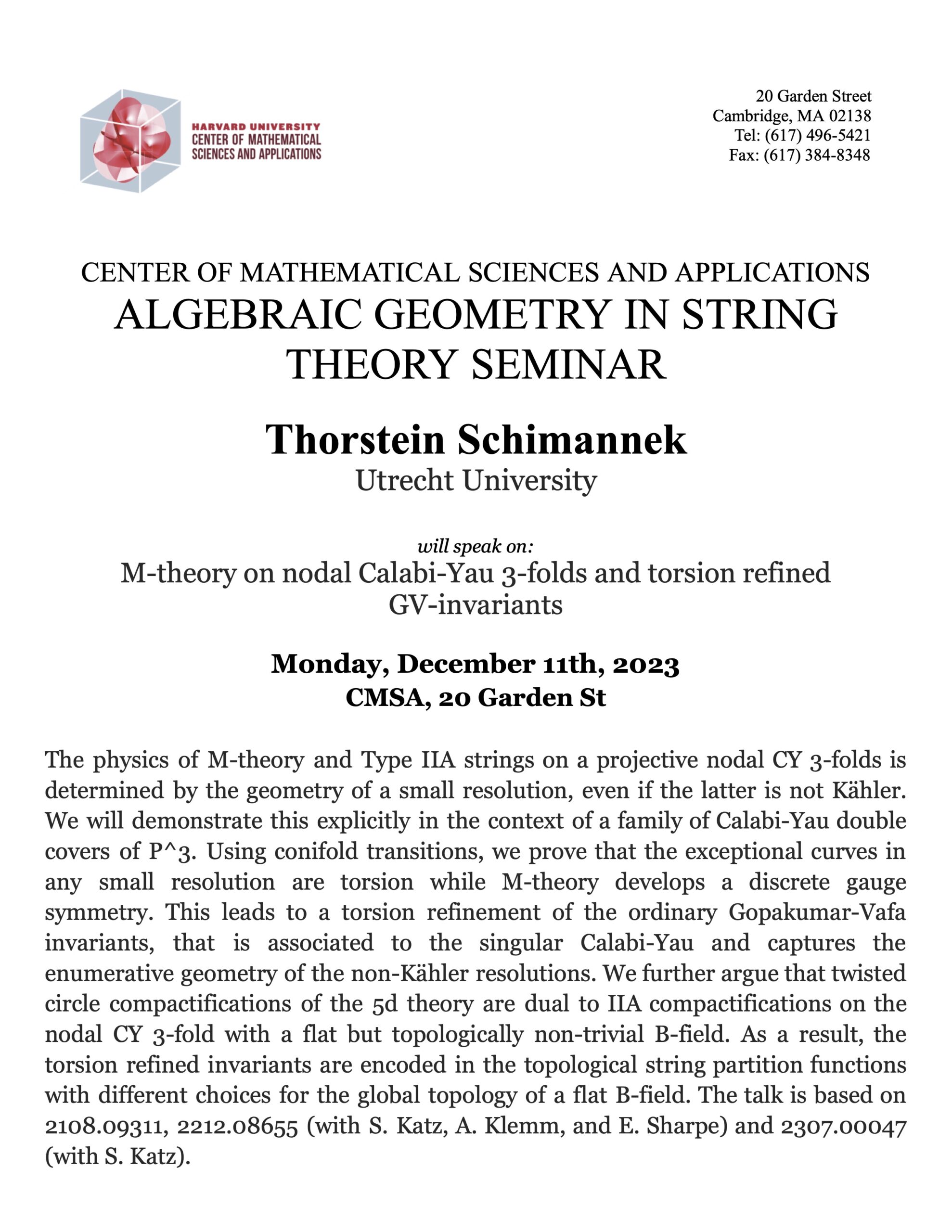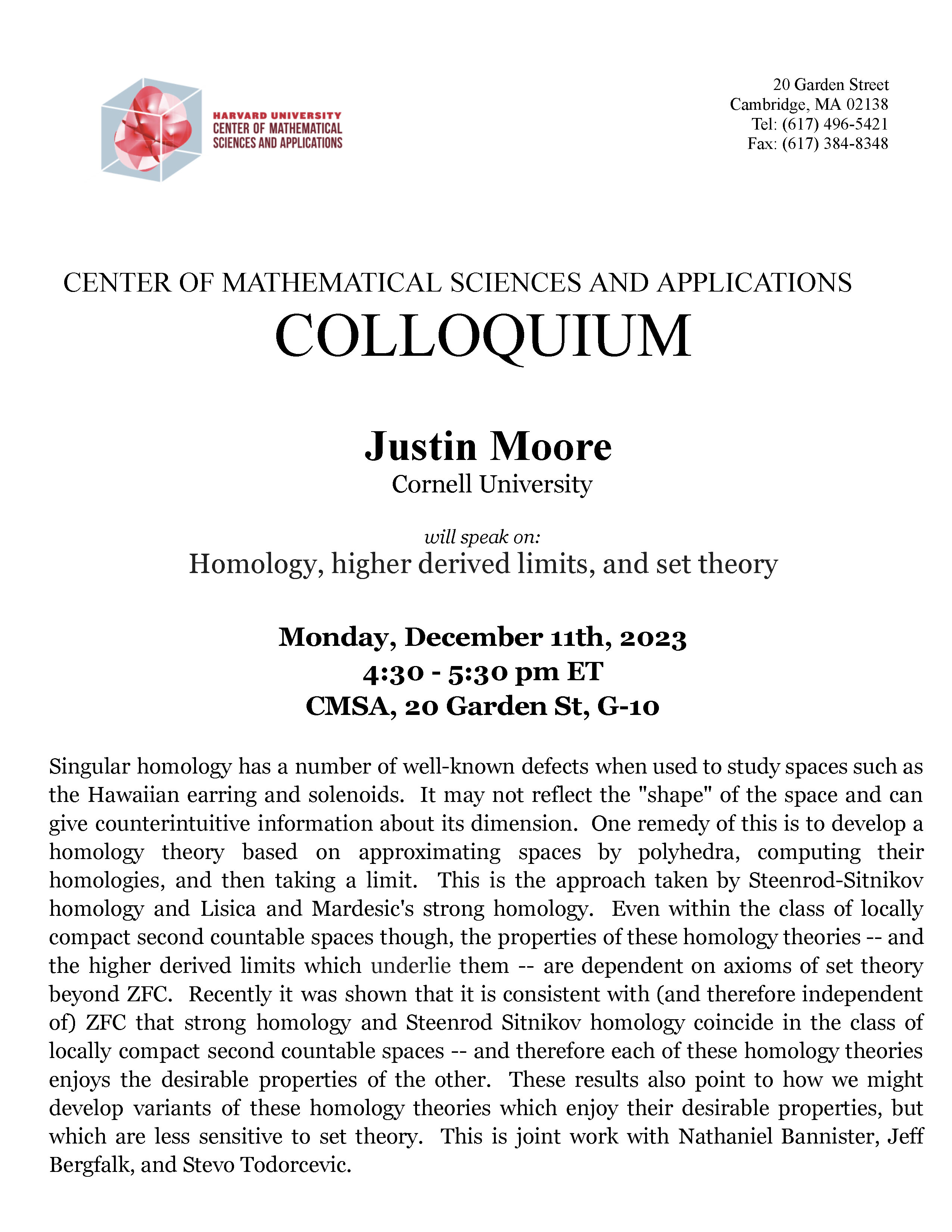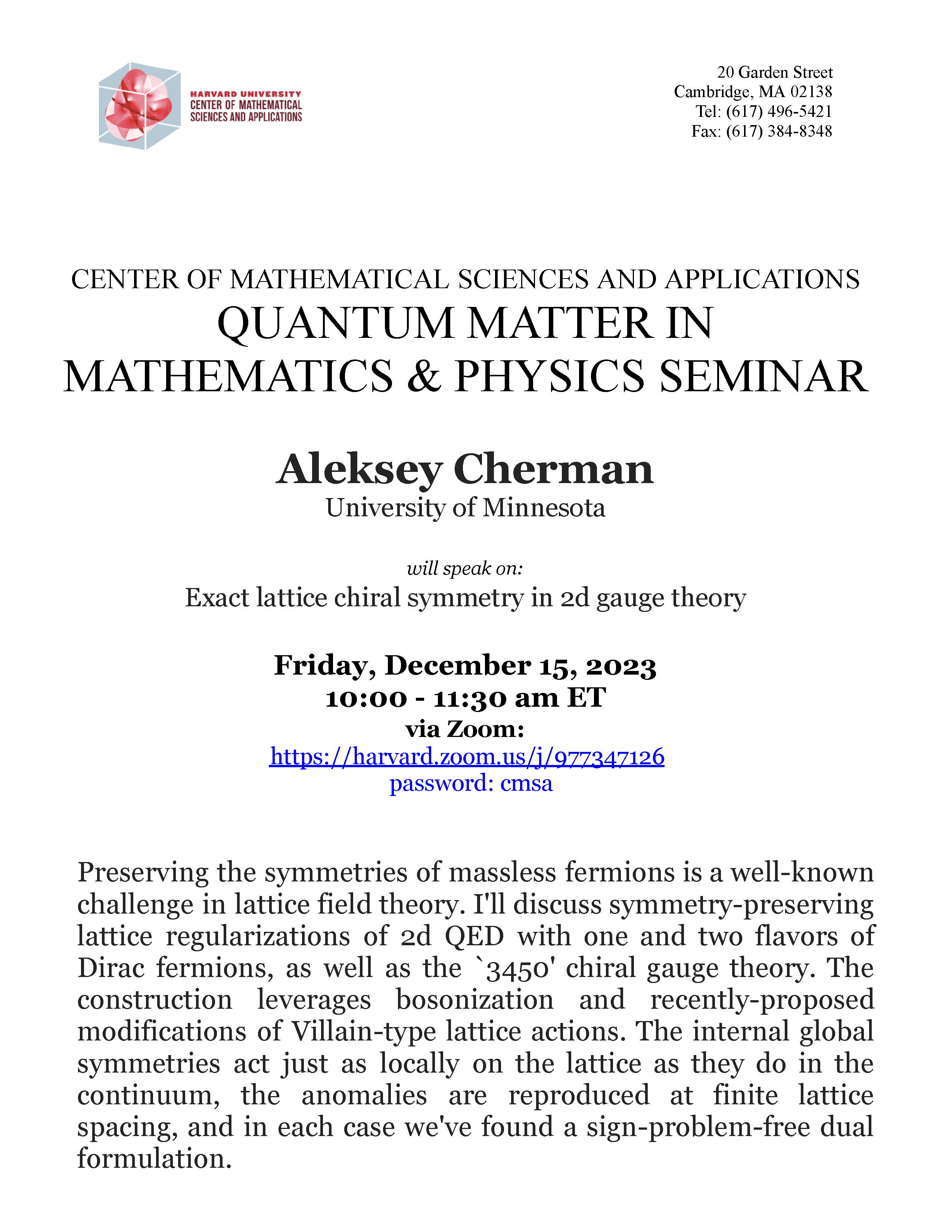The Fractional Quantum Hall Effect at ν=5/2: Past, Recent, and Future
CMSA Room G10 CMSA, 20 Garden Street, Cambridge, MA, United Stateshttps://youtu.be/2CbIDgFFzRY Topological Quantum Matter Seminar Speaker: Ken K. W. Ma (Northeastern University) Title: The Fractional Quantum Hall Effect at ν=5/2: Past, Recent, and Future Abstract: The discovery of fractional quantum Hall (FQH) states started a new chapter in modern physics. Nowadays, more than 70 FQH states at different filling factors have been observed. Among them, the […]

